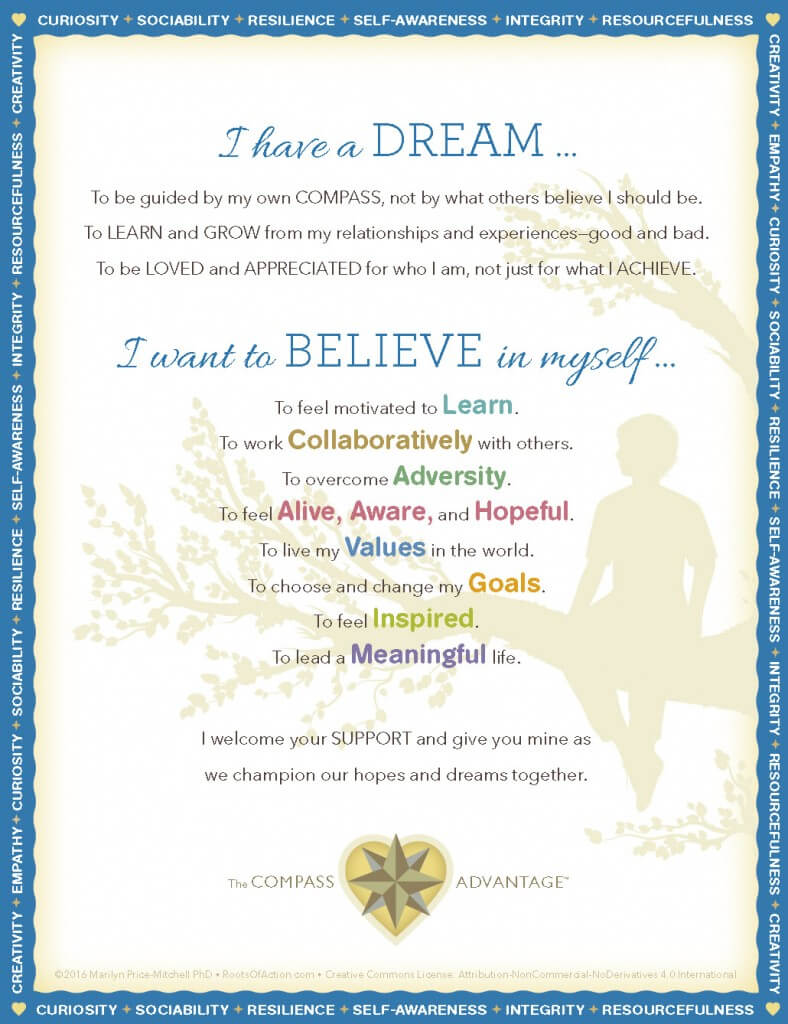
Coaches often utter the words “believe in yourself” to young people struggling with self-confidence. But what does it mean to believe in yourself? And why is it so important to the development of healthy and successful youth?
No one in the world of psychology is better known for the study of what these words mean than former Stanford professor Albert Bandura.
Psychologists refer to the concept of self-belief as self-efficacy and define it as a belief in one’s capability to accomplish goals that influence the events in one’s life. In other words, when you believe in yourself, you are better able to follow your dreams!
Learning to believe in yourself is at the core of The Compass Advantage—a framework for understanding positive youth development. This belief helps children and teens learn to chart their own successful paths toward young adulthood and throughout life.
According to Bandura, self-efficacy is a determining factor in how we feel, think, behave, and motivate ourselves in the world. He maintained that when you believe in yourself, you take positive actions on your own behalf and approach life as a challenge to be mastered.
In my interviews with young people over the years, it’s no surprise to discover that, deep down, what they most want is to believe in themselves—in their own inner compasses.
I Have a Dream: What it means to “Believe in Yourself”
From the outside, our children are very different from one another. They have diverse backgrounds, interests, capabilities, and career aspirations. But if we look deeper—to a young person’s internal world—they have much more in common.
The following statement, backed by years of research on self-efficacy, was collaboratively written with teens involved in a community effort to improve the lives of youth. It is designed to be used as a resource for families, schools, and communities—to discuss children’s hopes and dreams and the types of adult support that most benefits kids on their journeys toward adulthood. What does it mean to believe in yourself? Teens helped come up with beautiful words!
You are welcome to download and print I Have a Dream. To do so, either click here or on the image above. My Parenting Promise and Our Community Promise are additional documents designed to complement I Have a Dream. Learn how all stakeholders support children’s healthy youth development!
References
Bandura, A. (1994). Self-efficacy. In V. S. Ramachaudran (Ed.), Encyclopedia of human behavior (Vol. 4, pp. 71-81). New York, NY: Academic Press.
Bandura, A. (2001). Social cognitive theory: An agentic perspective. Annual Review of Psychology, 52, 1-26.
Featured Image Credit: dotshock
Published: February 3, 2016




